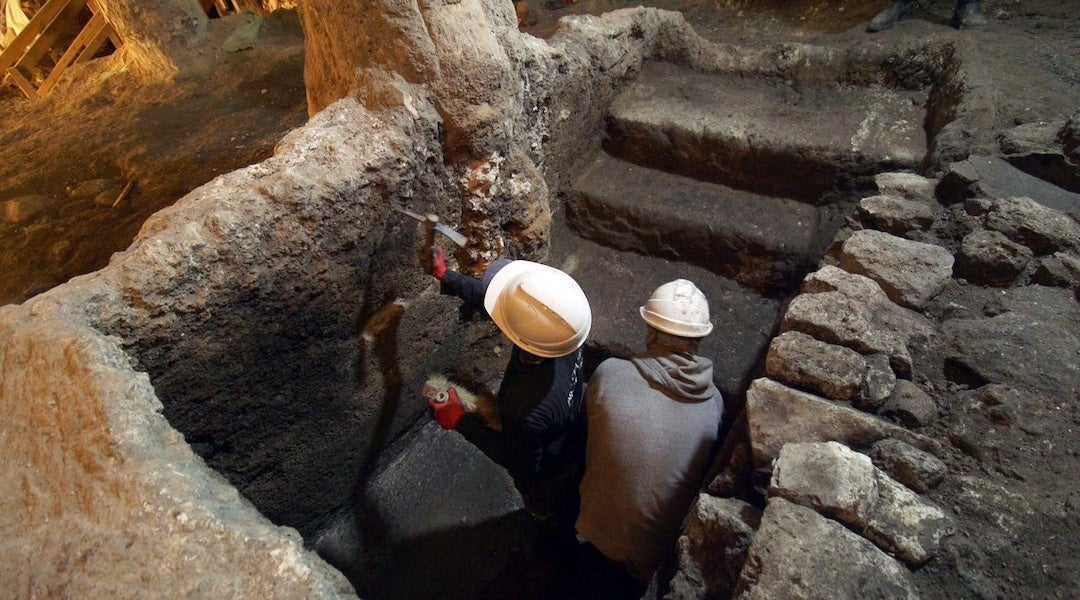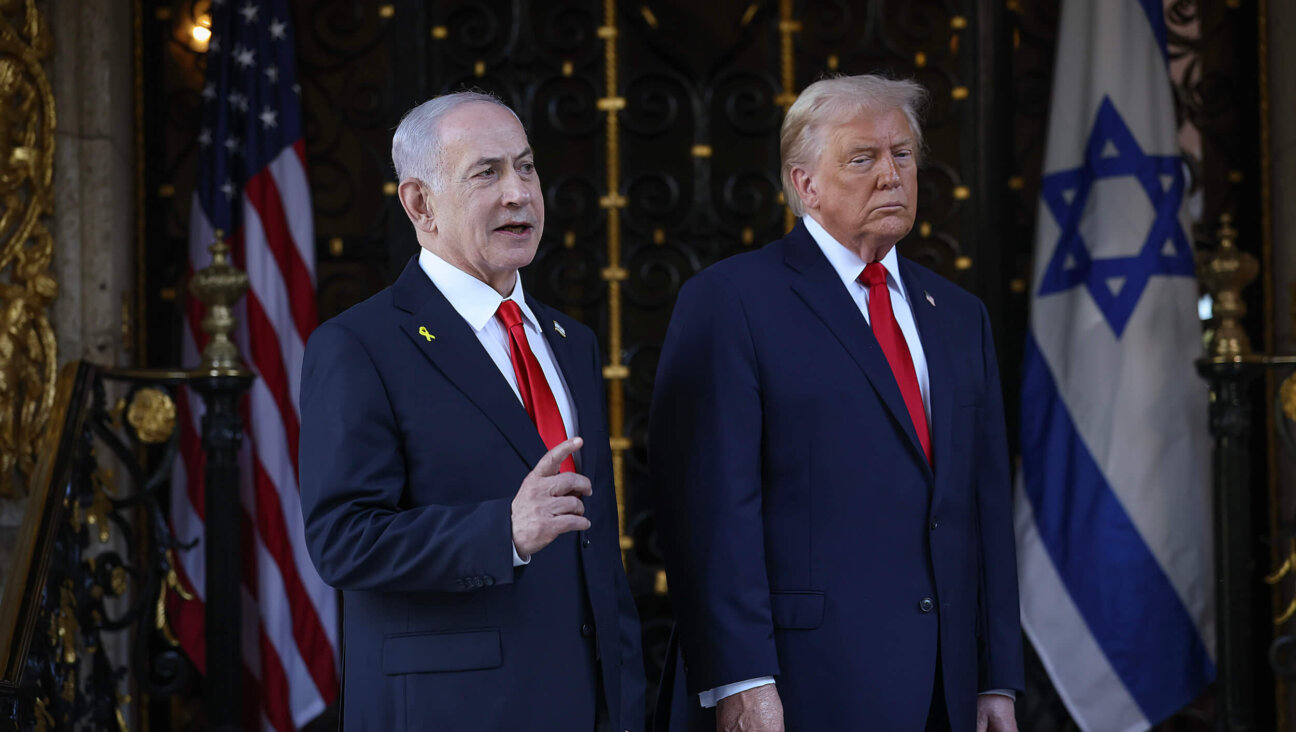Defense Minister Moshe Yaalon May Be Voice of Moderation on Iran

Loyal Soldier: Moshe Yaalon is a strong ally of Prime Minister Benjamin Netanyahu, but has a record of breaking ranks when he perceives unreasonable risks. Image by getty images
Although Benjamin Netanyahu’s next defence minister shares his deep distrust of the Palestinians, the two could yet clash about when – and whether – Israel should go to war with Iran.
Ex-general Moshe Yaalon is a loyalist of Netanyahu’s Likud party who, as a senior if sometimes sidelined member of the outgoing coalition government, routinely boosted the rightist prime minister and his strategic outlook.
But the hulking, bespectacled Yaalon, 62, also has a record of breaking ranks when he perceives unreasonable risks.
As military intelligence commander in the mid-1990s he disagreed with the left-leaning government’s optimism about fledgling peace talks with the Palestinians. Promoted to armed forces chief of staff, he saw his tenure cut short after he opposed Israel’s plan to withdraw from the Gaza Strip in 2005.
Those objections dovetailed with Netanyahu’s, who cites repeated Palestinian revolts against the Jewish state, and the Islamist Hamas takeover of Gaza, as justifying his reluctance to give up the occupied West Bank.
The ideologue Netanyahu and the plain-talking, part-time farmer Yaalon have, however, differed in private about tackling Tehran’s nuclear drive, a more remote and formidable challenge.
An Israeli official said Yaalon was among half the ministers in Netanyahu’s inner security cabinet who, in the past, voted down his proposals to attack Iran in defiance of U.S. calls to hold fire while international sanctions are escalated instead.
“Yaalon is hawkish about the Palestinians like Netanyahu, but he is cautious on Iran,” said Amotz Asa-El, fellow at the liberal Jerusalem think-tank Hartman Institute, who has followed the incoming defence minister’s military and political career.
He said Yaalon might serve as a “counter-weight” to any renewed bid by Netanyahu to go to war – unless Israel receives hard intelligence its arch-foe is about to build a bomb, in which case, Asa-El argued, cabinet support could be unanimous.
WELCOME IN WASHINGTON?
The Iranians deny their nuclear projects have hostile designs and point to Israel’s assumed atomic arsenal as the main regional menace. While advancing sensitive uranium enrichment, they resumed talks on a compromise with world powers last month.
Yaalon’s military pedigree largely mirrors that of outgoing defence minister Ehud Barak. Before reaching the high command, they both headed Israel’s premier special forces regiment, in which Netanyahu served as a junior officer, and thus enjoy decades-old rapports with him. There the similarities end.
Barak, a centrist one-time premier, was crafty in statecraft and conferred monthly in Washington, though his maverick views were seldom welcomed within Netanyahu’s nationalist coalition.
Yaalon, said Asa-El, “is less impulsive, more low-key, more calculated and generally more modest” than Barak.
He can also be impolitic. That may make it harder for Yaalon to explain Israel’s West Bank settlements, overseen by the Defence Ministry, to foreign leaders who believe they undermine any prospect for revived peace talks with the Palestinians.
Whereas Barak consistently voiced trust in U.S. President Barack Obama, Yaalon last year questioned his resolve to curb Iran. After the Democrat’s reelection to the White House in November, however, Yaalon took a different tack, noting with approval U.S. military mobilisation in the Gulf.
Dennis Ross, a former Obama adviser on the Middle East, said that while Yaalon will get American respect for his experience in uniform, Barak’s legacy will be difficult to live up to.
“No successor (to Barak) will come in with that same kind of stature” in the Obama administration’s eyes, Ross told Reuters.
Known by his childhood nickname “Bogie”, Yaalon led Israeli commandos in the 1988 assassination in Tunis of PLO strongman Abu Jihad. As general he favored tough tactics against Palestinians revolting in the West Bank and Gaza – putting him in the sights of war-crimes suits by their supporters abroad.
He now faces new domestic fights in the form of defence budget cuts and a long-delayed review of the exemptions enjoyed by many ultra-Orthodox Jews from compulsory national service.














